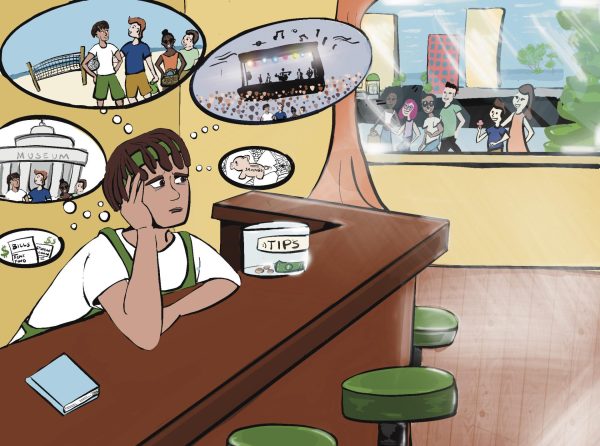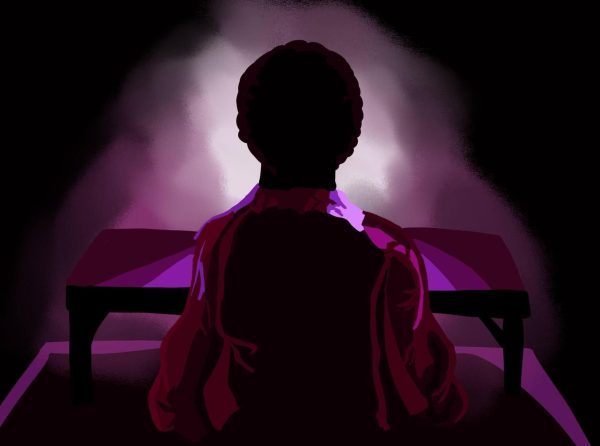Diane Guerrero on the importance of telling your own story
Guerrero is the child of Colombian immigrants who were deported when she was 14-years-old. She stars in “Orange Is The New Black” and “Jane The Virgin.”
Personal narratives are important, especially those that shine a lot on some of the most pressing social issues of our time. Just as important is making sure that the authors of those stories are the people they most affect.
At 14-years-old, “Orange Is The New Black” actress Diane Guerrero’s Colombian parents were deported back to their home country while she was at school. She came home to find them gone. It would be the first time she had ever told her story when Guerrero wrote an op-ed in the Los Angeles Times about how she grew up dealing with her parents’ status as undocumented immigrants pursuing their citizenship.
After her story was shared thousands of times across the country, Guerrero found herself being invited to different places to speak as an activist for immigration reform. This led to her being inspired to write a book, “In The Country We Love,” about her life as a Latina who is dealing with the things so many of us deal with: immigration, personal relationships and mental health.
On May 4, Guerrero flew into Chicago to spend an afternoon with DePaul students to talk about her book and answer questions about being a Latina in the workforce. The talk was the last event in the “Latinos and Mass Incarceration” series that was hosted by the Department of Latin American and Latino Studies.
“It’s honestly kind of my fantasy to be taught by you,” Guerrero told Maria Hinojosa, who moderated the event. “You guys are really lucky,” she told the students in the audience.
Born in New Jersey, Guerrero grew up in Boston and spent much of her time with her family translating things into Spanish, helping fill out applications and having discussions about her family’s undocumented status.
“Throughout my childhood I watched my parents try to become legal but to no avail,” Guerrero wrote in her op-ed. “That meant my childhood was haunted by the fear that they would be deported. If I didn’t see anyone when I walked in the door after school, I panicked.”
But at 14-years-old, Guerrero’s Colombian parents were deported back to their home country while she was at school. She came home one day to find them gone.
Later, her older brother would also be deported.
Life went on for Guerrero, as it does for many children of immigrants across the country. She was taken in by other Colombian families and went on to graduate from high school, went to college for political science and communications and eventually pursued a career in acting – but her parents weren’t there for any of those major milestones.
She spoke at length about how she was often frustrated with her parents, because she so badly wanted to live a “normal” American childhood. In some ways, Guerrero held many anti-immigrant sentiments because she had internalized so much of what she was going through instead of acknowledging her hurt and fear.
Guerrero said that telling her story became an integral part of who she is, because once she did so she realized she wasn’t alone. Every single day in the U.S., the children of immigrants are separated from their families as a result of immigration policies.
She noted that not a single person at any level of government took any note of her, meaning that a minor U.S. citizen was without any legal guardianship.
“No one checked to see if I had a place to live or food to eat, and at 14, I found myself basically on my own,” she wrote.
Guerrero said that she would visit Colombia over the summer to see her parents and her brother, and they have since improved their relationship.
She said that as tough as it has been to come to terms with her frustrations and tell her story, she does it because “that’s the human story.”















Santiago Camarena • May 14, 2018 at 12:29 pm
To tell our own story is very important at this time. Primarily because there aren’t any stories about Latinos, Chicanos, Mexicanos. We are at the very least the other third of America story.
In order to abide to the basics of the Constitution and become a better version of ourselves we must acknowledge this so that we all can enjoy the difference.
Our stories will stand up for equality, fight racism and present uncomfortable truth of our history that must be told.